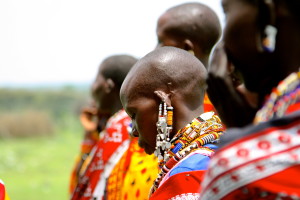This is an update to “Extraordinary victory for the Maasai: the untold story of a failed land grab.”
Last October, we shared news that Maasai people—including one of our grant recipients—in Tanzania’s Loliondo area had won an important victory when the government abandoned plans to kick them off their land. Read our original blog about their victory here.
It would have been a fantastic win for people whose bright smiles and colorful robes grace Tanzanian tourism posters. If only the government hadn’t reneged.
Now there are reports that the government will seize 1,500 square kilometers (about 930 square miles) in Loliondo near the Serengeti, potentially evict tens of thousands of Maasai people, and turn their land into a commercial safari reserve. According to our advisors in the area, 57,532 Maasai people could be ordered to leave by the end of the year.
If that is true, the land will have literally been sold right out from under them.
This isn’t just tragic news for the Maasai people. It’s also terrible for elephants, giraffes, and other wildlife that call this area adjacent to the Serengeti home. Once Loliondo becomes a “wildlife corridor,” wealthy tourists will be allowed to hunt big game there. The Maasai people are nomadic herders who depend on this land to sustainably graze their animals. They don’t hunt big game. And they live peacefully within their natural ecosystem.
The Guardian reported the government has promised 1 billion shillings (about US$575,000) to be channeled into socio-economic development projects.
Do you think those funds will trickle down to the people being robbed of their livelihoods and heritage? The Maasai don’t and have rejected the offer.
We will share more from our advisor in the area soon—check here and Facebook for updates.

